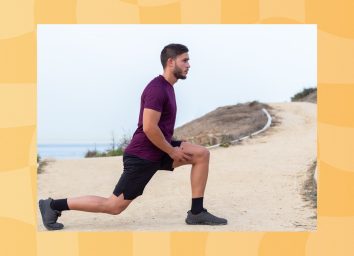The Best Foods To Help Prevent Breast Cancer, Expert Says
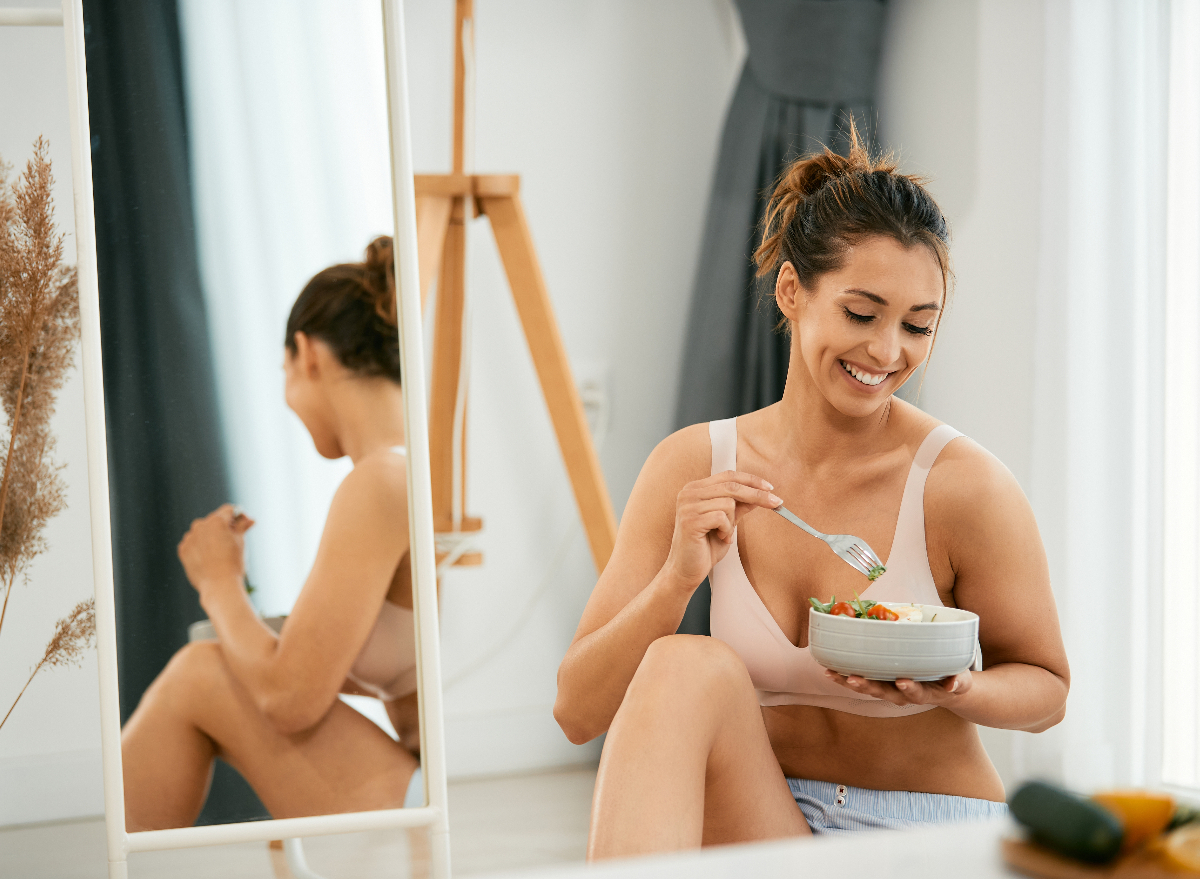
October means Breast Cancer Awareness Month. It's a time to learn and be mindful of the cause, prevention, diagnosis, treatment, and cure of this horrible disease. Cancer.org estimates that in 2022 alone, approximately 287,850 women will be diagnosed with invasive breast cancer. Sadly, the monstrous disease will take the lives of around 43,250 women this year as well. It's so necessary to be proactive and learn every possible way to help protect yourself against developing breast cancer. Breast Cancer Awareness Month has prompted Eat This, Not That! to reach out to Dr. Mike Bohl, MD, MPH, ALM, the Director of Medical Content & Education at Ro, and learn the best foods to help prevent breast cancer.
Breast cancer is a disease where cancer cells develop in one or both breasts. According to the National Breast Cancer Organization website, "Cancer is a broad term for a class of diseases characterized by abnormal cells that grow and invade healthy cells in the body. Breast cancer starts in the cells of the breast as a group of cancer cells that can then invade surrounding tissues or spread (metastasize) to other areas of the body."
As far as the best foods to help prevent breast cancer are concerned, Dr. Bohl explains, "The truth is, cancer is a complex disease and it's difficult to draw direct links between an individual food and the risk of cancer years or decades later." He adds, "There are also many other factors that play a significant role in the risk of developing breast cancer, such as family history, physical activity, reproductive history, and hormone exposure."
Dr. Bohl suggests rather than thinking of specific foods that can prevent breast cancer, it may be more beneficial to consider overall dietary habits you can adopt to hopefully lower the potential risk. So, let's get started!
Bump up your fruits and veggies.
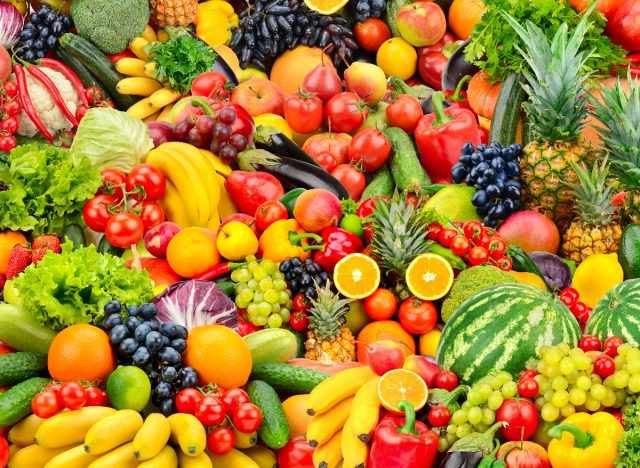
Dr. Bohl advises the first and most important step to take in your diet to lower your risk of developing breast cancer is to include plenty of fruits and veggies in daily meals. Fresh fruits and veggies have antioxidants, which can be helpful in preventing cellular damage, along with phytochemicals, which are chemicals derived from plants that can help lessen your risk. Dr. Bohl points out, "Examples of phytochemicals include carotenoids and isothiocyanates, which can be found in foods like yellow/orange vegetables and cruciferous vegetables, respectively."
There are many shopping lists you can find online. For example, according to MD Anderson Cancer Center, colorful fruits and veggies are great, such as bok choy, berries, Brussels sprouts, cauliflower, grapes, pears, grapefruit, oranges, leafy greens, spinach, and tomatoes.
Related: This One Thing Can Reveal Your Risk For Invasive Breast Cancer, Says New Study
Shop for low-fat, organic items.
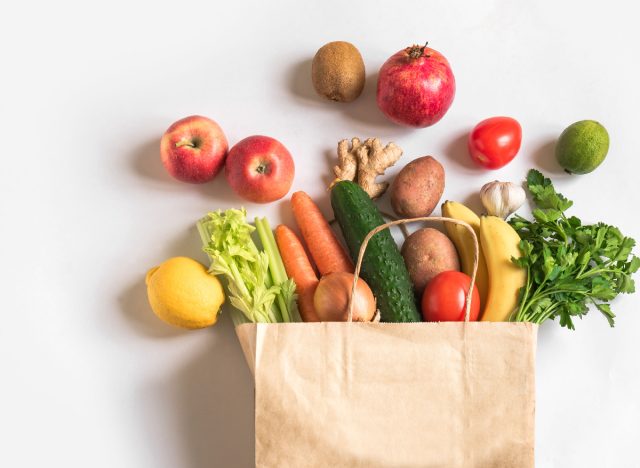
Another excellent step in our list of the best foods to help prevent breast cancer is to maintain a low-fat diet. Doing so has yielded positive results in preventing breast cancer in studies, as noted by Dr. Bohl. For instance, according to Breastcancer.org, a Women's Health Initiative Trial reveals that postmenopausal females who consumed less fat in meals lowered their risk of passing away from breast cancer by 21%.
In addition, a solid healthy habit that lowers your exposure to fertilizers and chemical pesticides is to purchase organic foods. Dr. Bohl tells us, however, "There currently isn't enough evidence to say whether shopping organic has any effect on breast cancer risk."
Related: 8 Early Symptoms of Breast Cancer That Sound Alarms
Keep up a healthy weight.
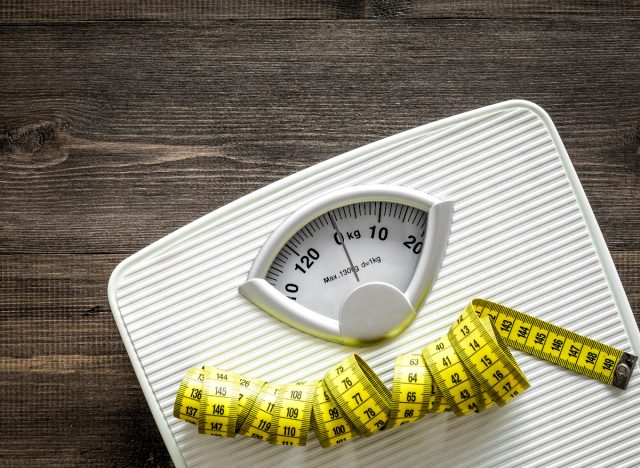
Keeping within a healthy weight range has shown to be helpful in warding off breast cancer. Dr. Bohl warns, "Obesity increases your risk. One popular diet that focuses on a high intake of fruits and vegetables (as well as emphasizes healthy fats instead of saturated fats) is the Mediterranean diet."
In addition, HelpGuide reports that in order to help decrease your cancer risk, swap out any saturated fats with unsaturated fats. You can get your fill of unsaturated fats from olive oil, nuts, and fish. Omega-3 fatty acids contained in fish like tuna and salmon, along with flaxseeds, can battle inflammation and promote a healthy heart and brain.
Limit your consumption of alcohol, red meat, and high-fat foods.
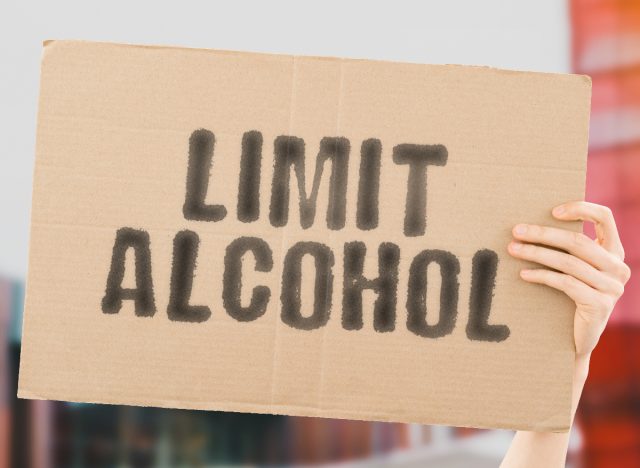
There are also things you should avoid having. For example, Dr. Bohl mentions that alcohol consumption increases the risk of many health problems, and breast cancer is one of them. It's wise to drink alcohol at moderate levels, and women should limit consumption to only one drink per day.
Another thing to stay away from? High-fat foods—specifically foods that contain saturated fat. These items have also been connected to a higher risk of breast cancer.
And lastly, avoid red meat at all costs, as it has been associated with colorectal cancer, prostate cancer, and others. Some studies reveal it may also cause a heightened risk of breast cancer. MD Anderson Cancer Center reports that healthy protein alternatives include lean turkey or chicken, fish, black beans, red beans, pinto beans, garbanzo beans (chickpeas), lentils, and eggs.


